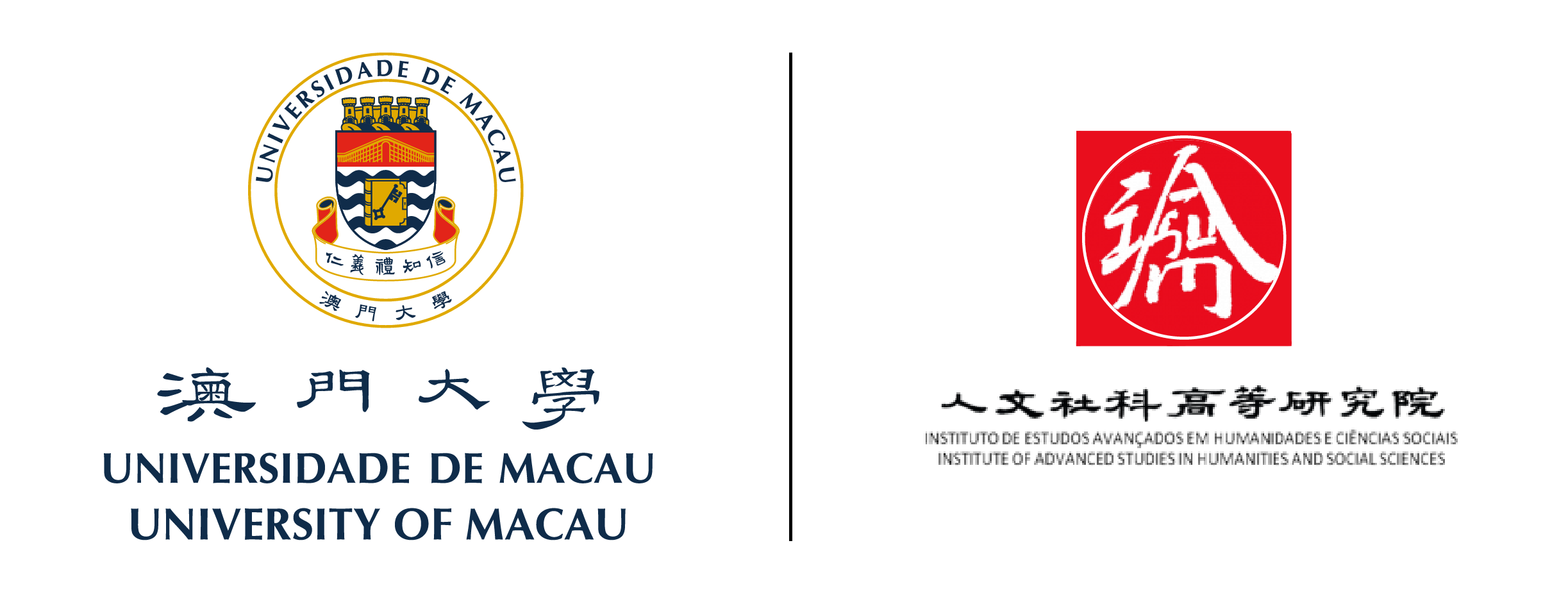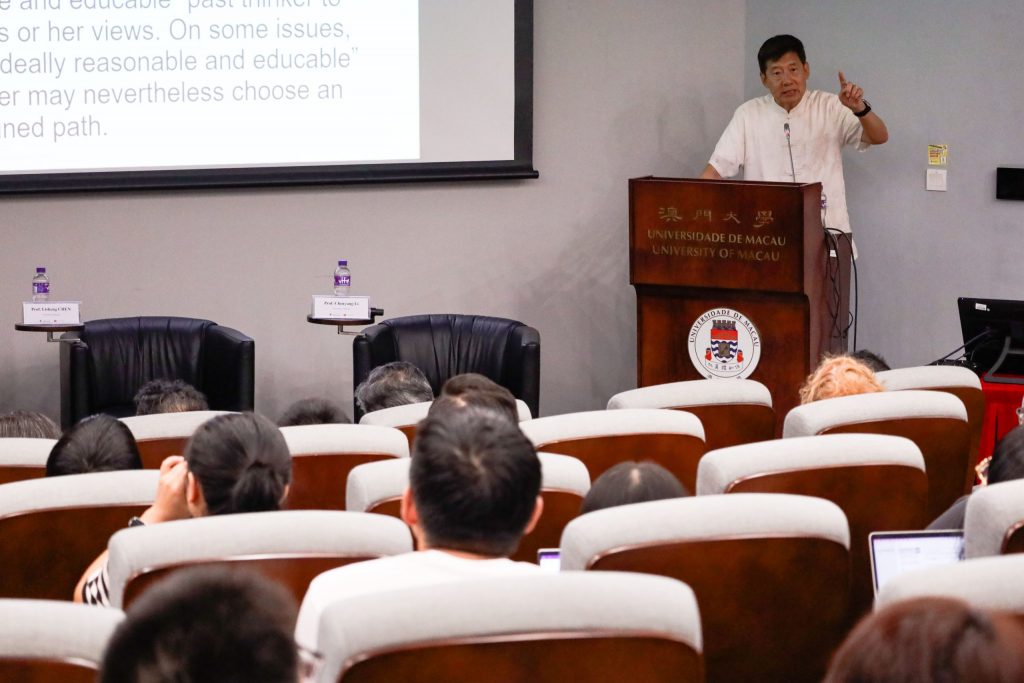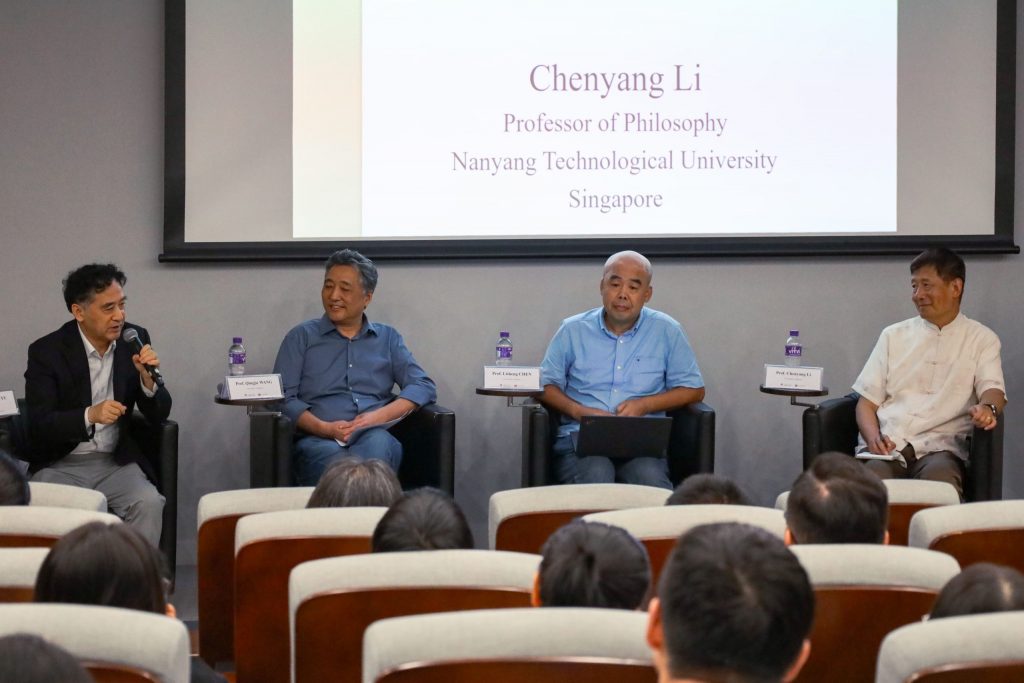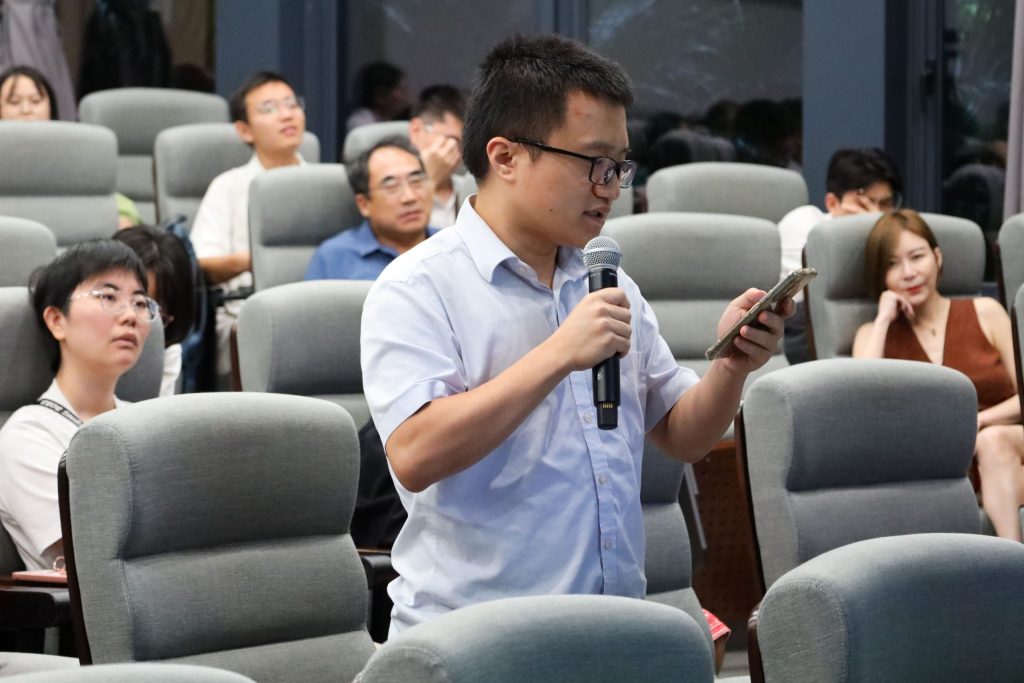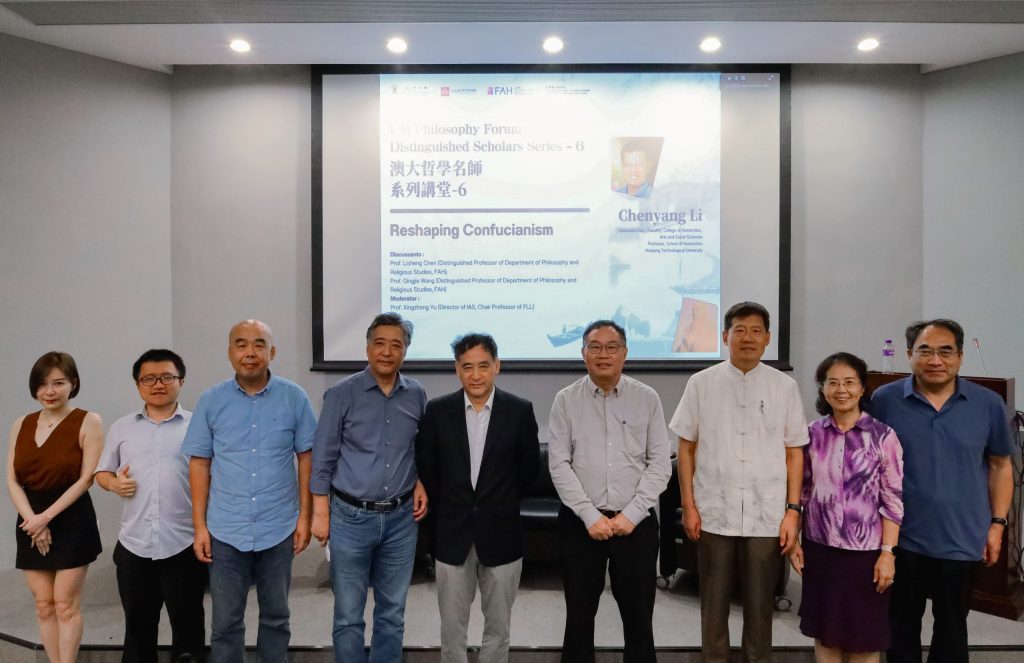
The UM Philosophy Forum Distinguished Scholars Series 6, co-organized by the Institute of Advanced Studies in Humanities and Social Sciences (IAS) and the Department of Philosophy and Religious Studies of the Faculty of Arts and Humanities (FAH), was successfully held on 23 September, at the Lecture Hall in Cultural Building. Professor Chenyang Li from Nanyang Technological University delivered a wonderful speech on “Reshaping Confucianism”. Professor Lisheng Chen and Professor Qingjie Wang from the Department of Philosophy and Religious Studies, FAH, were invited as the discussants, and Professor Xingzhong Yu, Director of IAS and Chair Professor of FLL was invited as the moderator.
At the beginning of the lecture, Professor Li explained and differentiated the concepts of Confucianism and Confucius’ism from a historical and developmental perspective. He argued that Confucianism includes not only the ideas of Confucius but also the claims of many other thinkers and that Confucianism has been continuously defined and redefined in response to the changing political and social context of China’s history. Subsequently, based on the concepts of historical reconstruction and rational reconstruction put forward by Richard Rorty, Professor Li proposed two important methodologies for the study of Confucianism: historical reconstruction and philosophical reconstruction, and explained and elaborated on these two important methodologies. And then, Professor Li introduced the principle of charity, the principle of humanity, and the principle of progressive humanity, respectively. He especially emphasised that under the principle of progressive humanity, we should not only make sense of ancient thinkers by placing them under their historical circumstances as prescribed by the principle of humanity but also expand their ideas based on their overall philosophical dispositions in response to modern sensibilities. Finally, Professor Li shared his understanding of comparative philosophy. Comparative philosophy philosophizes through comparison and contrast across philosophical traditions to learn about other cultural traditions, solve philosophical problems, generate new insights, and develop new theories. It includes, but is not limited to, cross-cultural comparative work.
In the discussion session, Professor Lisheng Chen, on the other hand, suggested that Professor Li’s research is a conscious reconstruction of Confucianism, which provides us with a new methodology and contributes to the globalisation of Chinese philosophy. Professor Qingjie Wang also shared his views on the phenomenon that Confucianism, as well as other theories, are always reshaping and being reshaped. The professors also had enthusiastic discussions with the scholars and students in the audience on the relationship between Confucianism and modernity, how to define ‘progressive’, the limits of progressive Confucianism, Confucianism and AI, and other issues.
The event attracted the participation of many scholars and students and triggered active discussion and deep thinking about Confucianism. IAS will continue to hold high-quality academic activities to provide more opportunities for deepening academic exchanges and broadening intellectual horizons.

